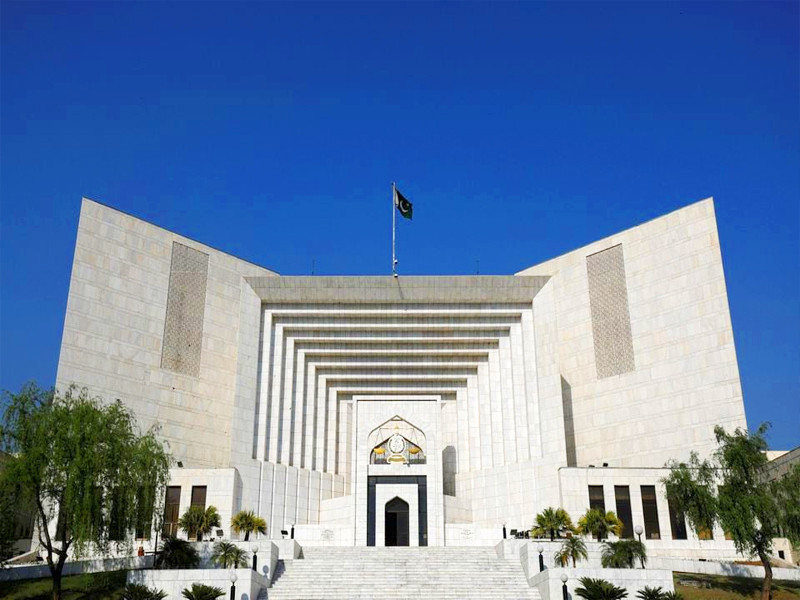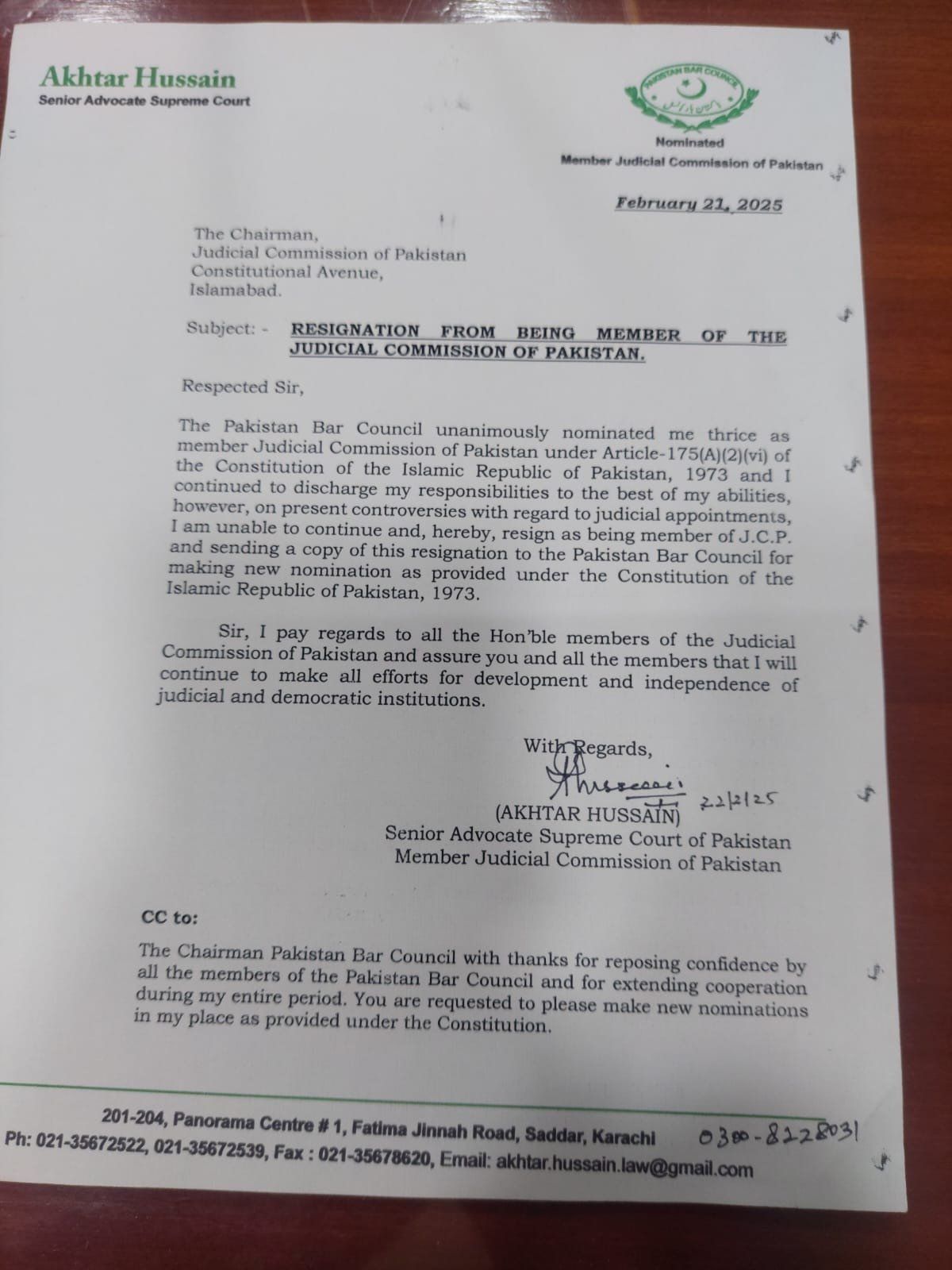
Senior Supreme Court advocate Akhtar Hussain has resigned from his position as a member of the Judicial Commission of Pakistan (JCP), citing concerns over controversies surrounding judicial appointments.
Hussain, who was nominated thrice by the Pakistan Bar Council (PBC), submitted his resignation to Chief Justice Yahya Afridi, who heads the commission.
In his letter, he expressed dissatisfaction with the recent selection process for Supreme Court judges.
"On present controversies with regard to judicial appointments, I am unable to continue and, hereby, resign as a member of JCP," he wrote, requesting the PBC to nominate a new representative in his place.
Despite stepping down, Hussain assured his continued support for judicial independence and democratic institutions.
The resignation comes shortly after the JCP appointed six new judges to the Supreme Court, a move that sparked criticism from some legal and political circles.
Pakistan Tehreek-e-Insaf (PTI) lawmakers and two senior Supreme Court judges boycotted the process, raising questions about its transparency.
Earlier this month, the Judicial Commission sought nominations from high courts across the country, asking for lists of five senior judges from each.
However, disputes over seniority and transfers—particularly in the Islamabad High Court (IHC)—led to internal dissent.
A group of IHC judges formally challenged the revised seniority list, arguing that a recently transferred judge should be placed at the bottom of the list instead of being considered for immediate promotion.
Hussain's departure is the latest challenge for the 13-member Judicial Commission, which was restructured under the 26th Constitutional Amendment to include four lawmakers.

The commission, chaired by the chief justice of Pakistan, is responsible for appointing judges to the Supreme Court, high courts, and Federal Shariat Court.
The resignation has reignited debates over the independence and transparency of judicial appointments in Pakistan.
Legal experts and bar councils have long called for reforms to the process, arguing that it needs to be more structured and merit-based to uphold the credibility of the judiciary.
Earlier, Opposition Leader Omar Ayub—who was among four lawmakers nominated as JCP members—also tendered his resignation, further highlighting the growing tensions within the commission.
With Hussain's exit, the Pakistan Bar Council is expected to nominate a replacement in the coming days.
Meanwhile, the controversy over judicial appointments is likely to remain a contentious issue within Pakistan’s legal and political landscape.
Moreover, the Islamabad High Court Bar Association had filed a fresh petition in the Supreme Court last week, challenging the president’s authority to transfer judges without public interest justification.
This marks the second major challenge to judicial transfers in recent days.
Filed under Article 184(3) by Bar President Riasat Ali Azad, the petition contends that the president does not have unlimited powers under Article 200(1) of the Constitution to reassign judges between high courts.
It argues that judicial transfers should only occur in the public interest.
The petition follows a similar move by five judges of the Islamabad High Court (IHC) have filed a petition in the Supreme Court of Pakistan, challenging judicial transfers and their impact on seniority.
The 49-page constitutional petition, filed under Article 184(3) through senior lawyers Munir A. Malik and Barrister Salahuddin, argues that the President of Pakistan misused Article 200(1) by overriding the Judicial Commission’s authority in transferring judges.























COMMENTS
Comments are moderated and generally will be posted if they are on-topic and not abusive.
For more information, please see our Comments FAQ